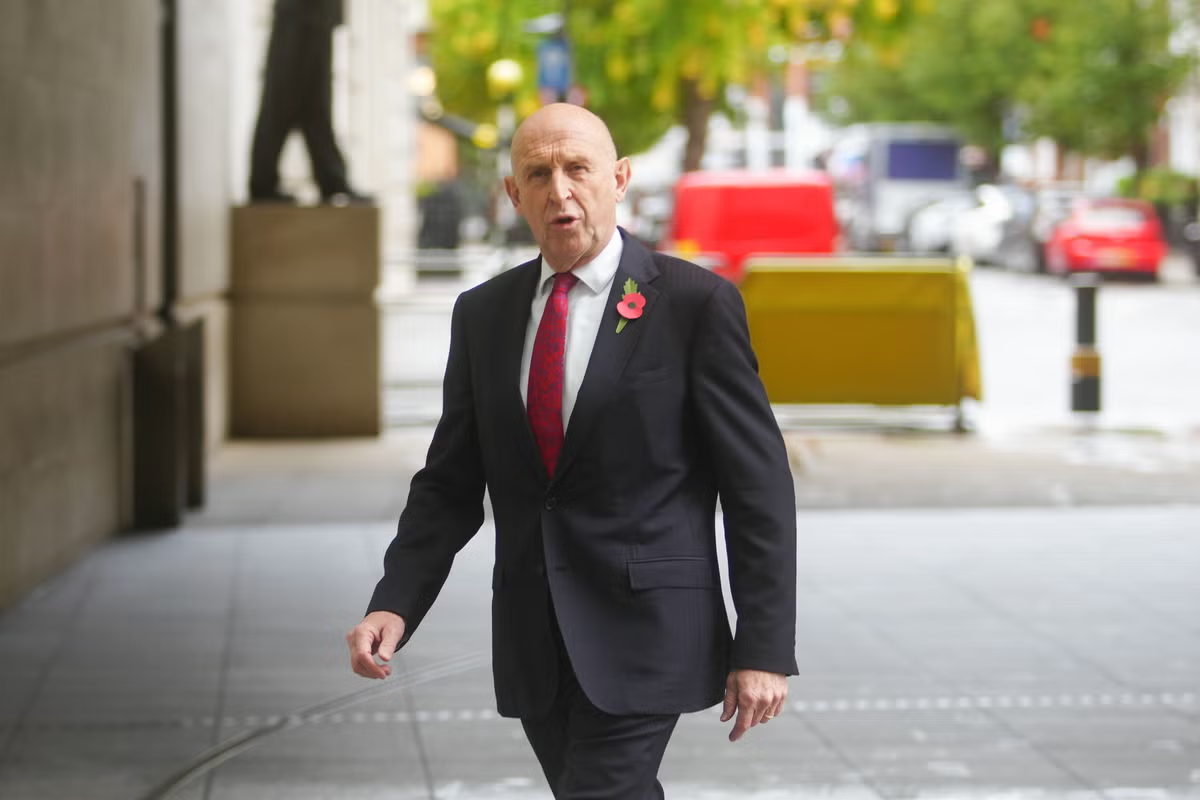A Cabinet minister has warned there will be “consequences” of recent weaker economic forecasts in this month's Budget, as he refused to repeat Labour's fiscal promises.
Defense Secretary John Healey insisted no decisions had been made on the final form of the budget, which will be delivered by Rachel Reeves on November 26.
But he added that the Office for Budget Responsibility (OBR) now sees “scars” on the economy much worse than previously thought and that the Chancellor would make “announcements to address those challenges”.
And when asked whether the Government would honor its manifesto commitment not to increase income tax, national insurance or VAT, Healey refused to repeat the promise.
He told Sky News' Sunday Morning With Trevor Phillips programme: “That's for the Budget and that's due to be announced by the Chancellor at the end of the month.”
Pressed further on Labour's fiscal commitment, he added: “No decisions have been made on the budget, not even the Office for Budget Responsibility has presented its final figures.
“But what we do know is that they now see that the deep damage and scarring is much more serious than previously thought, a combination of years of cuts, Covid and really slow economic growth for 14 years.
“So there are consequences. Things change and we will have the necessary announcements to address those challenges in the Budget.”
But he insisted Reeves' announcement would stick to his “fiscal rules,” take steps to ease cost-of-living pressures and “drive stronger economic growth.”
His comments follow a week in which the Prime Minister himself failed to repeat Labor's promise amid speculation that Ms Reeves is planning to increase income tax.
The OBR is widely expected to lower its productivity forecasts for the UK at the end of the month, adding up to £20bn to the Chancellor's costs if it is to comply with its fiscal rules.
This adds to an already significant gap in its spending plans caused by higher borrowing costs, persistent inflation and spending commitments such as partially reversing cuts to the winter fuel subsidy and the U-turn on benefit bill reduction.
The figure could end up being even higher if it implements policies such as ending the two-child benefit limit and continuing the freeze on fuel taxes.
Having promised there will be “no return to austerity” in the form of deeper spending cuts, Reeves is expected to raise taxes again in the Budget.
Economists have suggested that raising the income tax would be the most effective way to raise the money it needs, and that the alternative solution of raising many smaller taxes would likely cause “unnecessary economic harm.”









